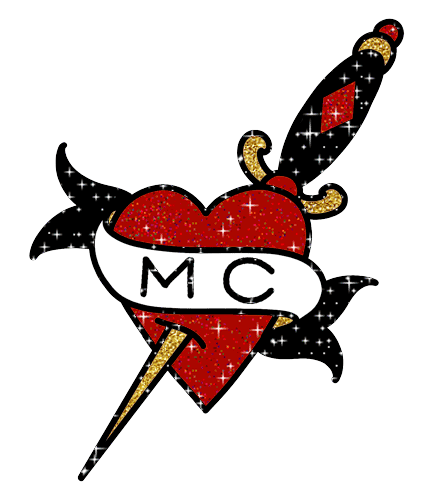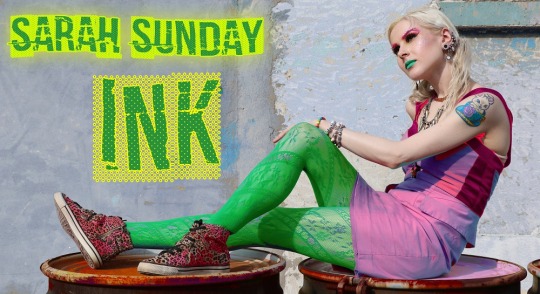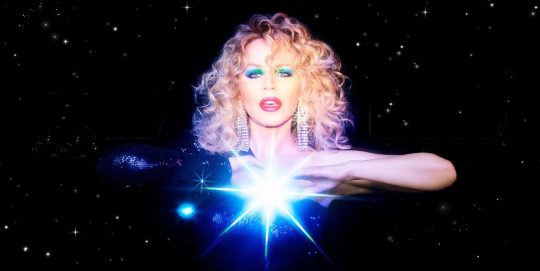Rebel Yell.

It should be no surprise that pop’s own Rebel Queen might eventually go rawk but Plastic Hearts is in many ways a surprisingly grown-up affair, channeling the MOR side of 80s pop-rock and country. Collaborating with Joan Jett, Stevie Nicks and Billy Idol points heavily towards the mission statement for the album but there is without doubt more gloss than guitars, despite what the leather studded elbow gloves and fashion-mullet might suggest. However, while this mix will invariably generate sneers from ‘authentic’ rock music fans it hits a bullseye in her capabilities as a performer and is huge fun to listen to.
Like everything Miley has done since Can’t Be Tamed (a record that has more in common with Plastic Hearts than you might imagine) there is a perfect concoction of visuals, artwork and fashion orbiting the music. Much like Lady Gaga’s Joanne it feels as though there is an element of cosplay to the rock ‘n’ roll persona and this extends to the songs which are peppered with with cheeky sonic and lyrical nods to her influences. But while Dead Petz remains the most believably honest and raw record she has produced this new release sits firmly on the right side of contrivance, the packaging and ephemera only serving to further enjoyment of the music.
The only dud track for me is single release Prisoner, featuring Dua Lipa, which somehow feels like the worst of both artists. Otherwise this a strong and cohesive collection of songs. Night Crawling, an absolute ear worm that would be a shameless Billy Idol pastiche if it didn’t also feature Billy Idol, perfectly encapsulates the tongue in cheek side of the album whilst Midnight Sky, WTF Do I know and title track Plastic Hearts offer a more uniquely Miley take on the genre. Surprisingly ballad heavy, the album closes with what I imagine is the only genuinely moving song to have been released named Golden G String.
Miley’s vocal talents have never really been in doubt to anyone not clouded by abstract hatred of her media image but it feels like she is finally moving into a more credible position of longevity as an artist. Plastic Hearts doesn’t quite have the exuberant joy (or, ironically, as big a middle finger) for me as Bangerz but it feels like the perfect album for her stylistically right now.
ARTIST: Miley Cyrus
TITLE: Plastic Hearts
TOP TRACKS: Night Crawling, WTF Do I Know, Midnight Sky, Golden G String
MOOD: Put another dime in the jukebox, baby
Junk-shop punk-rock glam-rock discotheque.

A riotous injection of day-glo, bubblegum pop punk right where we need it!
New single Ink is Sarah Sunday’s third release and it’s packed with the kind of confidence, earworm hooks and grin-inducing fun that makes it feel like she’s been beamed directly from a 1980s episode of TOTP.
Sarah lists her biggest musical influences as Avril Lavigne, Hey Monday and The Smiths which gives you a fair idea of the pleasing mix of cheeky wit and joyful defiance in her music. But on this track in particular I’d say she’s channeling the spirit of Shampoo and Helen Love topped off with a sunny early 00s EDM edge.
I absolutely love this song and if you like your rebel sneer glammed up with neon lipstick then I think you will too. But, as the peppily ‘fuck you’ lyric says, ‘if you get mad then that’s your bad’.
ARTIST: Sarah Sunday
TITLE: Ink
MOOD: Peroxide petulant
Sunday Sounds.
My favorite releases from the week ending 15/11/2020
Holiday Sidewinder – Red Right Hand
Hot Chip, Jarvis Cocker – Straight To The Morning
Pale Waves – Change
Lauren Aquilina – Latest Ghost
Badge Époque Ensemble, Jennifer Castle – Just Space for Light
Woodkid – Goliath
Oscar Scheller – Half Eaten
Jhana Boy – My Girl
Teenage Fanclub – Home
Haiku Hands – Suck My Cherry
Follow the playlist on Spotify
Your DISCO needs you.

Kylie and disco go together like glitter and sequins. No other genre of music so closely matches her particular brand of classy but saucy, so this should be a triumph – and it very nearly is.
There is nothing particularly inventive or startling in this album but I’m not sure that’s what anyone wants from Kylie anyway. Past attempts to stray too far from brand have mostly led to disaster and she is at her best when producing the kind of music that feels familiar, comforting and safe but without being cynical or phoned-in. The 3am cocktail that you cry into or that one pair of heels that look sexy as hell but don’t make your feet ache.
DISCO, on the whole, fulfils this brief but while a few of the tracks (Miss a Thing, Supernova, Hey Lonely) knock it out of the park there is a general feeling of too much filler and not enough killer. Most of the album was recorded during lockdown and at times there is also a slightly demo-ish feel to some of the songs that makes me wonder how they would have fared in more normal circumstances.
Nothing on this record is terrible and most of it is very enjoyable but like much of her post-Aphrodite output it falls squarely in ‘good but not great’ territory. There is enough quality here that it should keep her fanbase happy and her career ticking over but it is unlikely to be the boost that I would love her to have.
ARTIST: Kylie Minogue
TITLE: DISCO
TOP TRACKS: Supernova, Miss a Thing, Hey Lonely
MOOD: Dancing under the mirrorball in your living room
Welcome to the new starting line.

Poppy’s evolution from uncanny valley arthouse fembot to industrial metal angst machine reads more like a Black Mirror pitch than your standard celebrity gossip. Following her split from partner and puppet master Titanic Sinclair the inference is that this is now the ‘real’ Poppy. The raw, angry poppy. The Poppy that won’t take that shit anymore. How much this is the case and how much this is another alter ego in the Poppy funhouse hall of mirrors is anyone’s guess, but it’s certainly a stark departure from the bubblegum, satire drenched electro-pop she made her name with.
Musically this album might not be quite ‘post-genre’ as it claims but it’s certainly a crazy riot of sub-genres encompassing everything from deathcore to drum and bass and stompy goth. On the whole it works but it does feel at times like someone trying on a few different outfits to see which one they like best then deciding just to wear them all at once. Individually the tracks are exhilarating but as a whole it can become a little exhausting. There is a playfulness about the rebelliousness of it all, lyrically, sonically and visually, but there is definitely a sense that we are meant to take it seriously too and I think it’s saved ultimately by being neither too ironic or too self important.
More than anything this feels like a stepping stone, albeit a mostly successful one, and It will be interesting to see where she will go from here – will she commit to this riotous sound or will there be a whole new Poppy around the corner for us next time?
ARTIST: Poppy
TITLE: I Disagree
MOOD: Some girls just want to watch the world burn
STANDOUT TRACKS: I Disagree, Boodmoney, Fill the Crown, Bite Your Teeth
Nouveau
Fantastic, stylish and super cool new track ‘Nouveau’ released today by Mark Fernyhough and Steven Horry accompanied by an equally cool and colourful video featuring an awesome gang of Berlin roller girls.
ARTIST: Mark Fernyhough & Steven Horry
TITLE: Nouveau
INTRODUCING: TOOTHPASTE

Debut Single ‘TV Years’ out 10/08
Having already made their mark on the London indie scene in an impressive collection of other musical projects, Toothpaste comprise of Amol (Vox/Guitar), Daisy (Bass), Poppy (Keys) and Sami (Drums) and promise to bring you ‘minty fresh pop bangers, wicked tunes and okayish oral hygiene.’*
Their first single ‘TV Years’ is set for release later this month on the 10th of August and they will be throwing a launch show, with the help of Viral Nights, at The Lock Tavern in London that night.
The song explores the sense of disconnect between people in the modern world – singer Amol describes it as:
“the sort of feeling that makes you want to stay away from the outside world, at home watching TV.”
‘TV Years’ is a great introduction to what promises to be an exciting new band – awash with dreamy guitars, swirling digital synths, and drifting vocals.
Please keep your eye out (and mouth open) for Toothpaste who are most definitely One To Watch.
Listen to TV Years here now! >
Find out more here:
*none of the band are qualified to give legitimate advice on oral health.
5.4 Pitchfork, 1995–present

What did we do to deserve Pitchfork?
Fantastic article on the history of Pitchfork and the recent music industry in general. Here are a couple of excerpts but please read the whole piece..
..as indie bands watched the industry’s collapse, the envy and contempt they had traditionally felt toward major labels stopped making sense. What was there to envy anymore? Wasn’t it obvious that indie bands, with their devoted networks of fans, critics, and performance venues, had it better? Not only were the major labels soul-sucking money machines, they couldn’t even make you rich! This made early indie’s militancy and paranoia look silly, and the hard lines began to soften.
In the last thirty years, no artistic form has made cultural capital so central to its identity, and no musical genre has better understood how cultural capital works. Disdaining the reserves of actual capital that were available to them through the major labels, indie musicians sought a competitive advantage in acquiring cultural capital instead. As indie’s successes began following one another in increasingly rapid succession, musicians working in other genres began to take notice. Hip-hop is an illustrative foil. As indie bands in the ’90s did everything they could to avoid the appearance of selling out, rappers tried to get as rich as possible. The really successful ones stopped rapping—or at least outsourced the work of writing lyrics—and opened clothing lines and record labels. But for all their corporate success, rappers knew where the real cultural capital lay. When Jay-Z decided, as an obscenely wealthy entertainment mogul, that he wanted finally to leave his drug-dealer persona behind, he got himself seen at a Grizzly Bear concert in Williamsburg.
Pitchfork has fully absorbed and adopted indie rock’s ideas about the uses of cultural capital, and the results have been disastrous. Indie rock is based on the premise that it’s possible to disdain commercial popularity while continuing to make rock and roll, the last half century’s most popular kind of commercial music. Sustaining this premise has almost always involved suppressing or avoiding certain kinds of knowledge. For indie bands, this meant talking circles around the fact that eventual success was not actually improbable or surprising. For indie rock’s critics, it meant refusing to acknowledge that writing criticism is an exercise in power.
This is a kind of music, in other words, that’s very good at avoiding uncomfortable conversations. Pitchfork has imitated, inspired, and encouraged indie rock in this respect. It has incorporated a perfect awareness of cultural capital into its basic architecture. A Pitchfork review may ignore history, aesthetics, or the basic technical aspects of tonal music, but it will almost never fail to include a detailed taxonomy of the current hype cycle and media environment. This is a small, petty way of thinking about a large art, and as indie bands have both absorbed and refined the culture’s obsession with who is over- and underhyped, their musical ambitions have been winnowed down to almost nothing at all.
It’s usually a waste of time to close-read rock lyrics; a lot of great rock musicians just aren’t that good with words. What you can do with a rock lyric, though, is note the kinds of phrasing that come to mind when a musician is trying to fill a particular rhythmic space with words. You can see what kind of language comes naturally, and some of the habits and beliefs that the language reveals. This makes it worth pausing, just for a moment, over Animal Collective’s most famous lyric: “I don’t mean to seem like I care about material things.” The ethical lyric to sing would be, “I don’t want to be someone who cares about material things,” but in indie rock today the worst thing would be just to seem like a materialistic person. You can learn a lot about indie rock, its fans, and Pitchfork from the words “mean to seem like.”
I sometimes have the utopian thought that in a better world, pop music criticism simply wouldn’t exist. What justification could there be for separating the criticism of popular music from the criticism of all other kinds? Nobody thinks it’s weird that theNew York Review of Books doesn’t include an insert called the New York Review of Popular Books. One of pop music criticism’s most important functions today is to perpetuate pop music’s favorite myth about itself—that it has no history, that it was born from nothing but drugs and “revolution” sometime in the middle of the 20th century. But the story of The Beatles doesn’t begin with John, Paul, George, and Ringo deplaning at JFK. It begins with Jean-Philippe Rameau’s 1722 Treatise on Harmony, which began to theorize the tonal system that still furnishes the building blocks for almost all pop music. Or, if you like, it goes back to the 16th century, when composers began to explore the idea that a song’s music could be more than just a setting for the lyrical text—that it could actually help to express the words as well. Our very recent predecessors have done many important and wonderful things with their lives, but they did not invent the musical universe all by themselves. The abolition of pop criticism as a separate genre would help pop writers to see the wider world they inhabit.